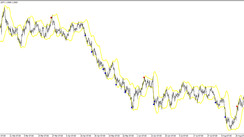Navigating the world of forex trading offers a quest for financial independence that attracts many. In particular, rookie traders often gravitate towards day trading or scalping, seduced by the allure of swift profits via multiple daily trades. However, a common misperception needs to be dispelled: increasing the number of trades does not inherently increase profits.
Furthermore, many believe that short-term trading leads to a balanced lifestyle, where there's time for hobbies, sports, and social life alongside trading. The reality is quite different, as meticulous preparation for short-term trading can often be as time-consuming, if not more so, than for long-term trading. That being said, the potential profitability of day trading or scalping should not be underestimated. The secret to success lies in comprehending the inherent challenges of these trading styles and tailoring your strategies and expectations accordingly.
In this light, here are five indispensable factors to consider if you're looking to immerse yourself in the world of day trading or scalping:
1. Starting Capital
A prevalent mindset among novice traders is the idea of starting with a small trading account, often as little as $25, with the ambition of rapidly growing this amount through a succession of small but profitable trades. While this approach might seem appealing, it's crucial to ground oneself in reality. Just because you can kick off trading with a modest capital doesn't mean it's the optimal strategy.
Grasping the concepts of leverage and margin is a non-negotiable prerequisite for any serious trader. Prior to embarking on your trading journey, you need to evaluate your trading performance to determine whether it can shoulder the expenses involved in executing numerous trades throughout the day.
2. Fees and Other Transaction Expenses
Trading operates much like any other business, with associated costs that must be accounted for. These expenses, including broker spreads, commissions, and taxes, form your overall transaction costs. Remember, an increase in trade volume equates to an increase in spreads and commissions for your broker.
To remain profitable, your earnings in pips must exceed what your broker charges. Consequently, backtesting systems that yield a mere 2-3 pips per trade should be reconsidered. It's imperative to be fully aware of your broker's spread/commission terms, to avoid any unpleasant surprises when you tally up your net gains and losses.
3. Market-Moving Dynamics
What holds importance for swing and position traders may not carry the same weight for short-term traders. As a day trader or scalper, your focus should be on the factors causing short-term market volatility.
Understanding the motivations and drivers of the major players in your chosen time frame and trading hours is a critical aspect of successful short-term trading. Knowledge of these dynamics allows you to anticipate market moves and respond proactively, thereby increasing your chances of successful trades.
4. Trading Strategies
After identifying the factors influencing currency movements in shorter time frames, the next step is to determine the strategies that best suit your trading style. Do you have a penchant for trading breakouts from psychological levels? Or perhaps you prefer identifying and capitalizing on trends within your chosen timeframe?
Every trader is unique, with individual strengths, weaknesses, and risk tolerance levels. Therefore, it's essential to tailor your strategy to your personal trading style and the specific dynamics of your chosen market.
5. Trading Psychology
Short-term trading presents a distinct set of psychological challenges. Traders focusing on shorter time frames are typically subject to heightened stress and pressure compared to those trading over longer time frames.
The fast-paced nature of day trading, the necessity of rapidly assimilating new information, the need to place orders swiftly, and the challenge of managing larger positions all significantly amplify the probability of making trading mistakes. Therefore, it's imperative to ensure that your trading discipline is unwavering and your risk management strategies are solid before venturing into the turbulent waters of day trading with real money.
Understanding the psychological aspects of trading is just as important as mastering technical analysis skills. Fear and greed can influence your decisions, leading to potentially catastrophic mistakes. Developing emotional resilience, practicing discipline, and maintaining a balanced perspective will not only help you navigate the emotional roller-coaster of short-term trading but also enhance your overall performance.
Conclusion
The downfall of many forex traders can be attributed not to a lack of capital or forex education, but rather to unrealistic expectations of accruing substantial "easy" money with minimal preparation.
Trading is a demanding enterprise, and consistent profitability requires time, effort, and above all, patience. Recognize these truths, and you'll not only increase your odds of surviving in the competitive world of forex trading but also significantly enhance your prospects of thriving in it.
Remember, it's not about how quickly you can make money, but rather how consistently you can make it and how well you can manage your losses. Taking a measured, disciplined approach will help you navigate the complexities of forex day trading and scalping, bringing you closer to your financial goals.





